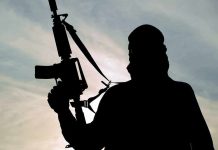
Pope Leo XIV’s leftist political agenda on immigration and climate change threatens to divide Catholics and challenge the Trump administration’s America First policies.
Key Takeaways
- Cardinal Cupich expects Pope Leo XIV to challenge conservative policies on immigration and climate change
- Pope Leo XIV, the first American Pope, has a history of criticizing Trump administration immigration policies
- Despite being progressive on social issues, Pope Leo XIV maintains conservative positions on key Church doctrines
- President Trump celebrated the election of an American Pope while Vice President Vance acknowledged potential policy disagreements
- The Pope’s dual American-Peruvian citizenship shapes his global perspective on migration issues
Cardinal Cupich Signals Pope’s Political Focus
Cardinal Blase Cupich of Chicago has made it clear that Pope Leo XIV will be wading into contentious political waters during his papacy. In recent statements, Cupich emphasized that the new Pope will focus heavily on immigration and climate change—issues that have long divided American voters and challenged the Trump administration’s policies. As the first American-born pontiff, Pope Leo XIV (formerly Robert Francis Prevost) brings unique perspective as both a U.S. citizen and a naturalized Peruvian, potentially setting up conflicts with the administration’s immigration priorities.
Cupich specifically highlighted immigration as an area where the Pope will likely challenge current American policies. “The pope is going to be a voice in that regard,” Cupich noted, pointing to the Catholic Church’s long-standing advocacy for migrants and refugees. This positions Pope Leo XIV as a potential critic of President Trump’s effective border security measures that have dramatically reduced illegal crossings since his return to office. The prospect of an American Pope criticizing American immigration policy creates an unprecedented dynamic in Vatican-U.S. relations.
Cardinal Blase Cupich, Archbishop of Chicago, told "Face The Nation" that he expects Pope Leo XIV "feels an obligation" to speak to the issues of the day amid "real challenges globally" — from immigration to climate change. https://t.co/FN3t5vmXq6
— Face The Nation (@FaceTheNation) May 11, 2025
A History of Political Activism
Long before his election to the papacy, Pope Leo XIV established a record of politically charged statements, particularly on social media. He has directly criticized the Trump administration’s previous immigration policies, setting the stage for potential conflicts with the current administration. The U.S. Conference of Catholic Bishops, which maintains close ties with the new Pope, continues to advocate for a comprehensive immigration plan that often contradicts the border security approach championed by President Trump and his supporters.
Cardinal Cupich suggested that Pope Leo XIV will likely continue the legacy of Pope Francis in engaging with global politics. This continuation of an activist papacy signals that American Catholics may face challenging conflicts between their religious leadership and political convictions. For conservative Catholics who supported President Trump specifically for his pro-life stance and religious liberty protections, the Pope’s anticipated emphasis on progressive immigration policies and climate change initiatives may create uncomfortable tensions in reconciling faith and politics.
Trump Administration’s Diplomatic Response
Despite the potential for policy conflicts, President Trump demonstrated statesmanship by celebrating the historic election of the first American Pope. Trump called the selection a “Great Honor” for the United States, highlighting the significance of an American leading the global Catholic Church. This diplomatic approach stands in contrast to the Pope’s previous criticism of Trump-era immigration policies, showing the President’s willingness to seek common ground despite ideological differences.
Vice President JD Vance, himself a Catholic convert, has taken a measured approach to the new papacy. While acknowledging the spiritual significance of the Pope’s role, Vance has also realistically noted that policy disagreements are likely. The Vice President has previously been criticized by Pope Leo XIV specifically regarding immigration stances. This creates a unique dynamic where a Catholic Vice President may find himself at odds with the spiritual leader of his faith on matters of national sovereignty and border security.
Complex Catholic Identity
Beyond the political landscape, Pope Leo XIV presents a complex religious figure. Sources close to the Vatican describe him as progressive on social issues while remaining conservative on fundamental church doctrine. He reportedly opposes the ordination of women as deacons, maintaining traditional Catholic teaching on this issue despite his otherwise liberal leanings. This blend of progressive and traditional positions makes him difficult to categorize neatly within American political frameworks.
The Pope’s dual citizenship—American by birth and Peruvian by naturalization—creates a unique lens through which he views migration issues. Having experienced life in South America, his perspective on immigration differs fundamentally from the border security concerns that motivate many American voters. For conservatives concerned about national sovereignty and the economic impacts of unrestricted immigration, the Pope’s anticipated advocacy for open borders policies represents a concerning development that could influence Catholic voters away from America First priorities.



